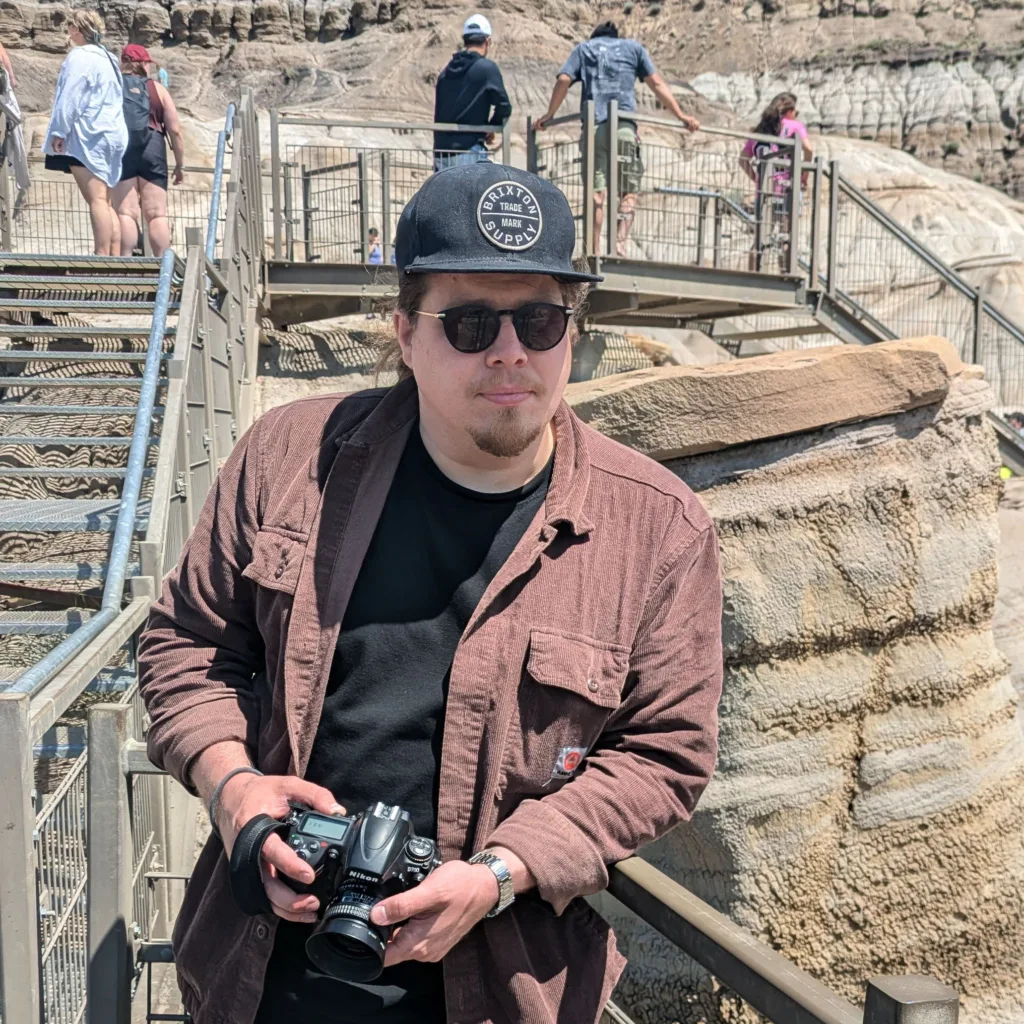I’m a neurodivergent and mentally ill academic and lens-based artist whose photographic work raises philosophical questions regarding themes of trauma, isolation, mental health, addiction, ugliness, and beauty, through a visual exploration of the quotidian and mundane. My artistic practice is committed to the democratic and accessible ideals of photography. I believe that work that overemphasizes traditional beauty, especially those works that elevate the most extreme versions of beauty that our overstimulated, consumerist culture demands, create a paradigm in which art cannot inform the everyday, it can only let us down. Instead, I am concerned with the ways that art informs our appreciation of everyday beauty and elevates our existence fundamentally through an ability to appreciate the banal as well as provide a greater theoretical understanding of the world around us.
I also hold a Ph.D. in philosophy from the University of Guelph. My research in specializes in philosophy of art, aesthetics, biology, evolution, and culture, incorporating empirical and interdisciplinary approaches through data analysis and digital humanities. I am interested in the evolution of art as a social and cultural practice as well as empirical approaches to philosophical questions. In my work, I make use of cross-cultural, phylogenetic, statistical, and machine-learning approaches. As an artist, I am also deeply concerned with the limits of reductionism as it relates to empirical approaches to aesthetics.
I am committed to the importance of my work as both an artist and academic. This includes exploring the various intersections of art and philosophy including the ways philosophical questions are raised in art as well as the ways questions about art are raised in philosophy. I believe that art and philosophy are both powerful ways of knowing.
My award-winning photographic work has been exhibited in solo exhibitions, group exhibitions, online, in print, and at philosophy conferences. My artistic work is currently generously funded by the Alberta Foundation for the Arts (AFA). My philosophical work has been published in peer-reviewed journals and presented at conferences and has been generously funded by a number of groups including The University of Calgary, The University of Guelph, and the Social Sciences and Humanities Research Council (SSHRC).
